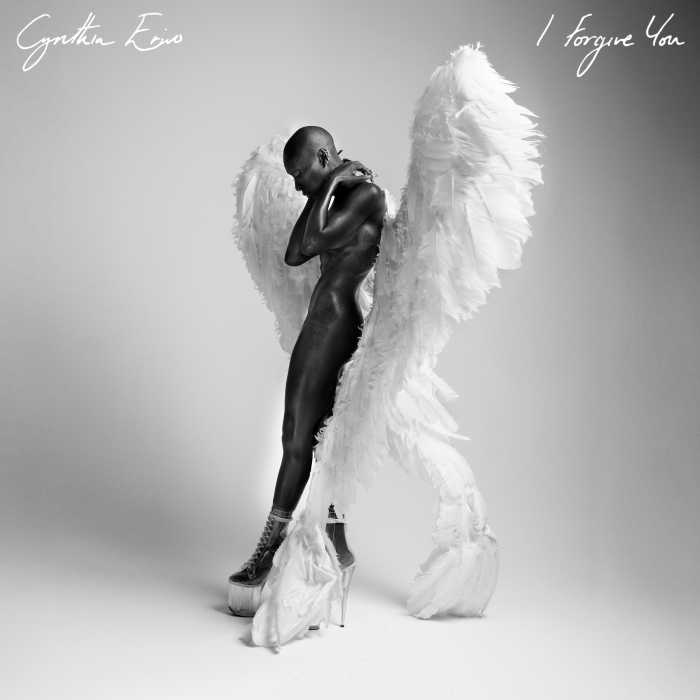H.C. McEntire. | MERGE RECORDS
The first song on “Lionheart,” the debut solo album by out lesbian Americana singer H. C. McEntire, gets to the point pretty bluntly. “A Lamb, A Dove” mixes Christian and gay imagery repeatedly. She’s obviously reclaiming the language of the religion, if not its substance, for women who have often been treated cruelly by it.
The song’s verses could be played on Christian radio: “It’s a wild world that will make you believe/ In a kingdom full of mercy and faith/ It’s a fine line and I will walk it with grace.”
All the verses, however, end up with the “dove,” to whom McEntire is singing, as her lover. And unlike many queer lyricists who avoid personal pronouns, she wrote “A Lamb, A Dove” as a song explicitly dedicated to a woman.
H.C. McEntire confidently embraces her Southern country roots
McEntire’s interest in Christianity isn’t new, dating back to her previous band Mount Moriah’s “Miracle Temple Holiness.” When I asked her label Merge Records’ publicist if McEntire is a practicing Christian now, McEntire replied directly to me, “I was raised in a Southern Baptist church. My family has been going to that church ever since my ancestors founded it in the late 1790s. That being said, I don’t currently self-identity specifically as a Christian.”
“Lionheart” is the first debut album from Mount Moriah’s H.C. McEntire. | MERGE RECORDS
McEntire began her path in music as the singer of the loud Sonic Youth-cum-Sleater-Kinney band Bellafea, forming the more roots-oriented Mount Moriah in 2011. Recently, she has performed with singer/ songwriter Angel Olsen, who plays on this album, along with lesbian musician Amy Ray from the Indigo Girls and riot grrrl pioneer Kathleen Hanna. Despite her experience in her first band, she claims that her true musical heritage lies in country and gospel, not punk. With the exception of a ticking drum machine on “Wild Dogs,” the production on “Lionheart” tends toward the traditional. It sometimes resembles the Springsteen/ Stones-influenced sound of more mainstream contemporary country singers like Chris Stapleton and Jason Isbell, as on “Dress in the Dark,” “Quartz in the Valley” and “Baby’s Got the Blues.”
As she did with Mount Moriah, McEntire clearly sings with a Southern accent. On half of the album, her vocals and songwriting are backed with beautiful string arrangements, as on “One Great Thunder.” “A Lamb, A Dove” begins with piano and gradually adds pedal steel guitar. “Wild Dogs” actually combines programmed drums and strings to a lovely effect. The vibe on “Lionheart” alternates between a Southern rock touch and mellower ballads.
Kicking off with “A Lamb, A Dove” is a deliberately confrontational touch, but “Lionheart” quickly abandons that. The rest of it is much lighter, on both Christian and lesbian references. “Dress in the Dark” seems to be addressed to a former lover who has become a junkie, something not entirely clear though McEntire sings, “I can only feel the marks winding around your arms.” “One Great Thunder” devotes its sole four lines to death. But McEntire’s lyrics are full of Southern flavor, evoking writers like Carson McCullers.
“Red Silo” muses, “back when this whole town smelled like tobacco/ back when we thought this would last forever.” “Lionheart” consciously evokes a period when McEntire wouldn’t have been made able to make this album as an out lesbian. The juxtaposition of imagery in “A Lamb, A Dove” makes a political statement that lies dormant but implicit in the rest of the album. As a result, it never seems like a nostalgia trip.
The issue of authenticity frequently and obviously comes up when white artists perform R&B and hip-hop. But it’s also a sore spot in country music, where Canadian artist Colter Wall sings about working class life despite the fact that his father was the premiere of Saskatchewan and actor Kiefer Sutherland has made some dreadful forays into the genre.
If one has heard the corrosive guitars of Bellafea rip away, one would understand why McEntire now insists that the country and gospel elements of “Lionheart” really are her heritage. But it’s also a chosen decision to state that lesbians have just as much right to play this style as conservative white men. And her skill as a singer/songwriter seems unquestionable to me, as does the quality of this album’s production and arrangements.
“Lionheart” is being released by the label that brought the world Arcade Fire, who helped turn indie rock into a “genre” and whose performers could play arenas and win “Best Album of the Year” Grammys, but McEntire never sounds like she’s slumming in country. I hope the audience that made Kacey Musgraves’ “Follow Your Arrow,” which explicitly said it’s okay to be gay, a mainstream country hit a few years ago finds out about the existence of “Lionheart” and enjoys it.
H. C. McENTIRE | “Lionheart” | Releasing Jan. 26 | Merge Records | Mergerecords.com/lionheart | Appears at City Winery, 155 Varick St., btwn. Spring & Vandam Sts. | Jan. 29-30 at 8 p.m. | $28-$38; citywinery.com/newyork




































